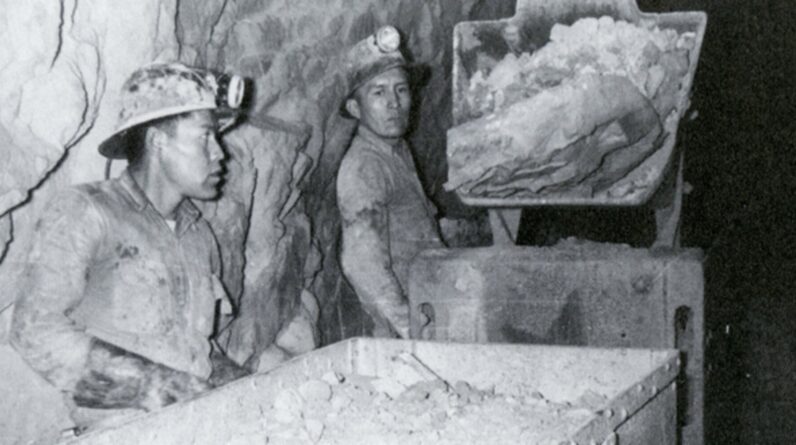Quito celebrates Foundation of Quito Day on December 6th each year to commemorate the city’s founding. On December 6th of every year, the city of Quito celebrates Foundation of Quito Day, a special occasion to honor and remember the day when the town was established.
This annual celebration holds great significance for the people of Quito, as it reminds them of their rich history and cultural heritage. Established in 1534 by Spanish conquistador Sebastián de Benalcázar, Quito has grown into a vibrant and diverse city.
Various events and activities mark the Foundation of Quito Day, including parades, concerts, traditional dances, and fireworks. It is a time for Quito’s residents to come together, celebrate their city, and pay tribute to its past, present, and future.
11 Historic on The Foundation of Quito Day
1. Historical Significance Of Foundation Of Quito Day
Quito, the capital city of Ecuador, celebrates Foundation of Quito Day on December 6th each year. This day holds great historical significance as it commemorates the town’s establishment in 1534 by the Spanish conquistador Sebastián de Benalcázar. Through time, Quito has evolved into a vibrant cultural hub, representing a blend of indigenous, Spanish, and mestizo influences.
The foundation of Quito marked a turning point in the city’s history, shaping its identity and cultural heritage. Celebration and commemoration of the day serve as a reminder of the city’s roots and the contributions made by its founders. It allows residents and visitors alike to appreciate Quito’s rich history.
On the Foundation of Quito Day, the city comes alive with festivities such as parades, concerts, and cultural activities. People dress in traditional attire, showcasing the diversity and traditions of the region.
The foundation of Quito Day also promotes the preservation of cultural heritage. It serves as an opportunity to recognize and protect the historical sites, architecture, and traditions that hold immense value for the city and its inhabitants. By acknowledging the foundation, Quito embraces its past while continuing to develop and progress toward the future.
2. Origins Of Quito: Tracing The City’s Roots
The foundation of Quito Day is a celebration of the city’s rich history and cultural heritage. Quito, the capital city of Ecuador, has a fascinating past dating back to ancient times.
The origins of Quito can be traced back to indigenous settlements that existed long before the Spanish conquistadors arrived. These indigenous communities, such as the Quitu, Cayambi, and Caranqui, established thriving civilizations in the region.
The arrival of the Spanish conquistadors in the 16th century marked a significant turning point in Quito’s history. Led by Sebastián de Benalcázar, the Spanish forces conquered the area and established a new settlement, which would later become the city we know today.
Understanding the origins of Quito is essential to appreciate the city’s immense cultural diversity and historical significance. From its indigenous roots to its colonial past, Quito offers a captivating glimpse into Latin America’s complex history.
3. Quito’s Foundation And Its Founders
Quito, the capital of Ecuador, has a rich history that dates back to its foundation. Francisco Pizarro, a Spanish conquistador, played a significant role in establishing the city. He arrived in Quito in 1534 and laid the foundation of the city with the help of local Indigenous leaders.
The collaboration between Pizarro and the Indigenous leaders ensured a successful establishment of Quito. The Indigenous leaders not only provided Pizarro with valuable knowledge about the geography and resources of the region but also played a crucial role in establishing relationships with the local communities.
This collaboration helped create a strong foundation for Quito, both physically and culturally. The Indigenous presence in the city can still be seen today in its architecture, traditions, and cultural diversity.
4. The Importance Of Quito’s Location
Being strategically positioned in the Andes Mountains, Quito played a crucial role in facilitating regional trade routes. Its location provided easy access to neighboring regions, making it a significant trading hub in South America.
Its proximity to the equator also made it an ideal place for merchants to converge. The city’s geographical advantage allowed it to efficiently connect trade routes between the coast and the jungle and between the continent’s northern and southern parts.
This strategic positioning enabled Quito to become a vital link in the vast trade network throughout the region. Merchants and traders were drawn to the city, leading to economic growth and cultural exchange. This further strengthened Quito’s position as a critical player in regional commerce.
As a result, Quito’s location was not just an advantage for its development but also contributed to the economic prosperity of the surrounding regions. The city’s role in regional trade continues to be significant, as it remains a major transportation and commercial hub in Ecuador and beyond.
5. Architectural Marvels: Reflections Of Quito’s Foundation
The architectural marvels of Quito’s historic center genuinely reflect the city’s foundation. Stepping into the streets of Quito is like taking a journey back in time, surrounded by impressive colonial-era buildings and landmarks.
The design and layout of the historic center are meticulously planned, showcasing the city’s rich cultural heritage. From ornate churches with exquisite detailing to grand government palaces, Quito’s architectural gems captivate visitors with their beauty and historical significance.
The harmonious Spanish colonial and indigenous styles blend to create a unique and awe-inspiring atmosphere. The cobblestone streets, narrow alleyways, and picturesque plazas further enhance the charm of this UNESCO World Heritage site. Exploring the architectural wonders of Quito’s historic center is a captivating experience that allows you to immerse yourself in the city’s past and admire its enduring beauty.

Credit: www.getyourguide.com
6. The Legacy Of Quito’s Foundation In Modern Times
Built upon ancient Inca foundations, Quito holds a rich historical and cultural legacy. Its foundation day, celebrated on December 6th, is a momentous occasion commemorating the city’s establishment by Spanish conquistadors in 1534. This event marks the beginning of Quito’s modern era, shaping the city’s development and character.
Today, Quito’s foundation remains an integral part of the local identity and significantly impacts tourism. The city’s historical center, a UNESCO World Heritage site, showcases well-preserved colonial architecture and attracts visitors worldwide. Locals take pride in their heritage, organizing events and festivities to celebrate Quito’s founding.
In recent years, efforts to conserve and promote Quito’s historical significance have gained momentum. Municipal authorities have implemented initiatives to protect and restore historic buildings, ensuring the preservation of Quito’s architectural heritage. Additionally, heritage tourism has been promoted, showcasing the city’s unique blend of European, indigenous, and mestizo influences.
Overall, the foundation of Quito continues to hold cultural and historical significance, uniting locals and captivating tourists who are drawn to its rich heritage.
7. Foundation Of Quito Day Celebrations: Bringing History To Life
The Foundation of Quito Day is a vibrant celebration that brings the history of Quito, Ecuador’s capital city, to life. The festivities include parades, reenactments, and cultural events that showcase the town’s rich heritage.
The streets are filled with traditional music, dances, and colorful costumes, transporting visitors back in time. The sights and sounds of the celebrations create a truly immersive experience, allowing locals and tourists alike to appreciate the significance of Quito’s foundation.
From the vibrant displays of historical reenactments to the rhythmic beats of traditional music, this day truly celebrates Quito’s pride and cultural identity. It’s an opportunity for the community to come together and honor the city’s past while also celebrating its vibrant present.
8. Quito’s Foundation In The Context Of Ecuadorian Identity
The foundation of Quito holds significant importance in the context of Ecuadorian identity. Quito’s historical and cultural influence on the nation has shaped a sense of pride and unity among its people. With a rich heritage that integrates Indigenous and European cultures, Quito embodies the blending of traditions and identities that define Ecuador.
Quito’s founding represents a pivotal historical moment that symbolizes the convergence of diverse peoples and traditions. Blending Indigenous roots with Spanish colonization led to a unique fusion of customs, languages, and beliefs. This integration has cultivated a distinct national identity that resonates throughout the country.
Quito’s influence on Ecuadorian culture can be seen in many aspects, including its architectural marvels, traditional festivals, and culinary delights. The city’s historic center declared a UNESCO World Heritage site, showcases its colonial past and constantly reminds us of the deep-rooted history that shapes the nation.
Overall, the foundation of Quito signifies more than just the birth of a city; it represents the integration of Indigenous and European cultures that have contributed to the diverse and vibrant Ecuadorian identity.
9. The Evolution Of Quito: From Foundation To Metropolis
Quito has undergone significant growth and urban development over the centuries. From its foundation to becoming a bustling metropolis, Quito has faced various challenges and opportunities that have shaped its history.
Throughout its existence, Quito has experienced periods of rapid expansion and transformation. The city’s growth can be attributed to migration, economic development, and political changes.
Both internal and external forces have influenced Quito’s urban development. The city has continuously adapted to meet the changing needs of its inhabitants, balancing the preservation of its historical roots and the demands of modernization.
Challenges faced by Quito include maintaining a balance between urbanization and preserving its cultural heritage. The city has grappled with issues such as traffic congestion, infrastructure development, and keeping its historic center, a UNESCO World Heritage site.
Opportunities have also emerged throughout Quito’s history. The city has embraced sustainable practices and initiatives to promote environmental conservation and improve the quality of life for its residents.
In conclusion, Quito’s evolution from its foundation to becoming a metropolis is a testament to its resilience, adaptability, and determination to grow while preserving its rich history and cultural heritage.
10. Exploring Quito’s Historic District: Must-visit Sites
The Foundation of Quito Day is a celebration that commemorates the establishment of the city of Quito. One of the must-visit sites in Quito’s Historic District is the La Compañía de Jesús Church. Known for its stunning Baroque architecture, this church is adorned with elaborate gold leaf decorations and intricate wood carvings. Its impressive interior is a testament to the artistry and craftsmanship of the colonial era.
Another prominent landmark in the Historic District is Plaza Grande, also known as Independence Square. Significant buildings, including the Presidential Palace, surround this bustling square. Visitors can witness the changing of the guard ceremony that takes place there every Monday.
The Santo Domingo Church and Monastery is another noteworthy attraction. This architectural gem features a stunning blend of Gothic, Moorish, and Baroque styles, providing a visual feast for visitors. Inside, you can admire the intricate designs of the altars and marvel at the beautiful religious artwork.
11. Quito’s Foundation Day: A Time For Reflection And Appreciation
Educational programs and workshops: Quito’s Foundation Day is a celebration of the city’s rich history and an opportunity for learning and growth. Various educational programs and workshops are organized to engage both residents and visitors. These initiatives aim to increase awareness about the city’s historical significance and cultural heritage.
Through interactive sessions and informative lectures, participants gain a deeper understanding of Quito’s foundation and influence on the present. These programs create a platform for dialogue and exchange of ideas, fostering a sense of appreciation for the city’s roots.
Commemorative ceremonies honoring the city’s history: Alongside the educational programs, Quito’s Foundation Day is marked by solemn memorial ceremonies. These ceremonies pay tribute to the founding of the town and the individuals who played a pivotal role in its establishment.
The atmosphere is filled with reverence and gratitude as participants reflect on the struggles and triumphs of the past. The ceremonies serve as a reminder of Quito’s enduring legacy and unite the community in appreciation for their shared history.
Frequently Asked Questions For Foundation Of Quito Day
What Is Ecuador Founders Day?
Ecuador Founders Day is a holiday in Ecuador that commemorates the country’s founding. It is celebrated on August 10th each year.
When Was Quito Founded?
Quito was founded on December 6, 1534.
How Is Fundacion De Quito Celebrated?
Fundacion de Quito is celebrated through various events and activities honoring the city’s foundation. These include parades, concerts, fireworks, and cultural exhibitions. It’s a vibrant celebration showcasing the rich history and heritage of Quito.
Why Is Quito Day Celebrated?
Quito Day is celebrated to commemorate the founding of Quito, the capital city of Ecuador. It recognizes the city’s historical and cultural significance. Quito Day is a time to honor and celebrate the city’s heritage, traditions, and contributions to Ecuadorian society and history.
Conclusion
Quito’s foundation is a remarkable milestone in Ecuador’s history, showcasing a unique blend of indigenous and Spanish colonial influences. This blog post explored the significance of the Foundation of Quito Day, shedding light on the city’s rich cultural heritage. As Quito continues to thrive as a UNESCO World Heritage Site, it is a captivating destination for travelers seeking to immerse themselves in its fascinating history, enchanting architecture, and vibrant culture.
Let Quito’s foundation and enduring legacy inspire you to explore the wonders this city offers.






